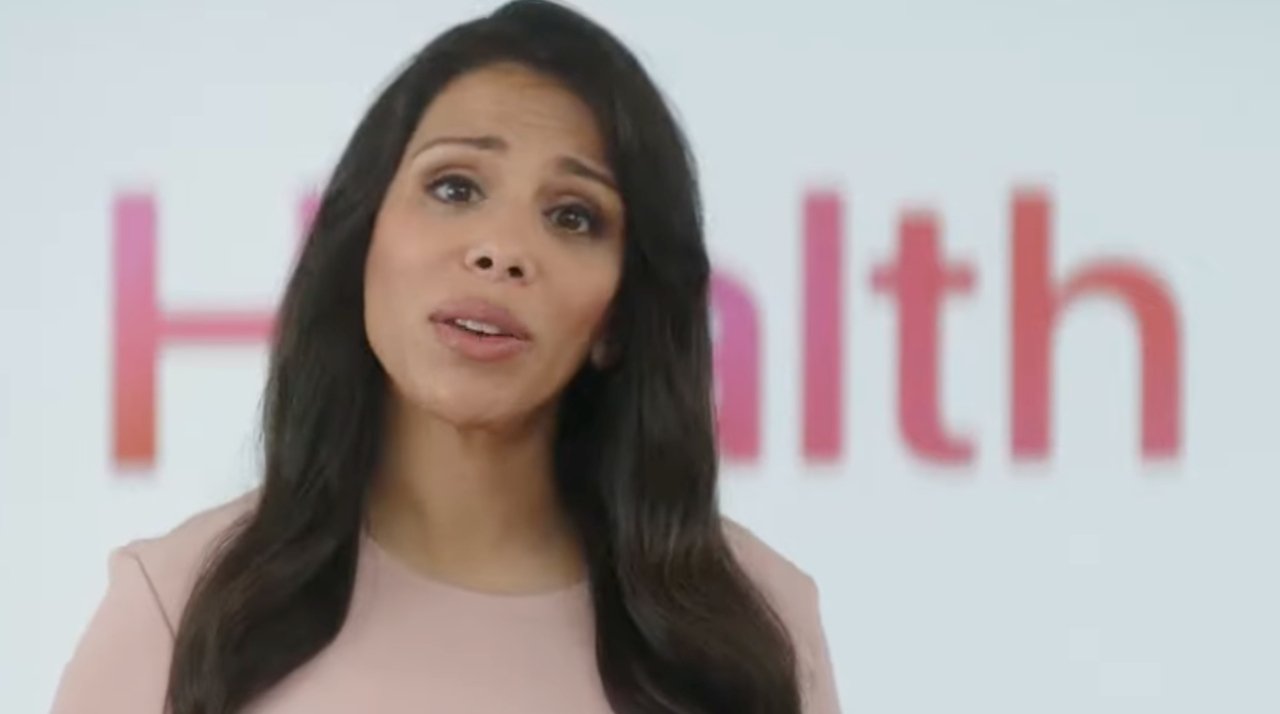Apple's VP of health says the company works 'like an orchestra'
Apple executive Dr. Sumbul Desai claims that the tech giant's success in health comes from how its design and engineering teams all work together for the Apple Watch, and other fitness projects.

Dr. Sumbul Ahmad Desai speaking during WWDC 2021
Apple's vice president, health, Dr. Sumbul Ahmad Desai, has confirmed that Apple runs entire clinics as part of its health research. Dr. Desai, speaking on the "Second Life" podcast, also revealed how it was partly Apple's integration of teams that persuaded her to join the company from Stanford Medical.
"I wasn't looking to leave," she says on Who What Wear's "Second Life" podcast. "It was a really hard decision to make, I mean, I really, really love Stanford."
"But what I was thinking was, you know, healthcare needs to change and where is it going to change from?" she continued. "Is it going to happen from within or is it going to happen with companies that are known for innovation that will help bring kind of healthcare along?"
"And I was really lucky, I mean it's kind of serendipity just kind of got to know somebody who asked me to start consulting on a project here [at Apple]," she said. "So I consulted first and then got to know the team here, and had a conversation probably over the span of a year on whether I should join or not."
Before her medical career, Dr. Desai worked in business and business strategy for Disney and ABC. She says now that this work, alongside her role as Associate Chief Medical Officer at Stanford, unexpectedly prepared her for Apple.
"Oh, absolutely I would have never thought that my role today could merge my past experiences so well, but it does," she continues. "[Studying] communications and working at ABC [helps with] how do you simplify the message and get to the core."
Dr. Desai says that within Apple she is responsible for the clinics and their research, as well as for health overall, but also that Apple blurs the lines between different teams.
"Design and engineering is really tied at the hip," she says. "Apple is very, very cross-functional, so you have every team come together."
Both in her medical career and now at Apple, Dr. Desai says that this combination of skills and people appeals to her, which gets the greatest results.
"What's amazing about my work today is [that it is] multidisciplinary," she continued. "When it comes together, it's like an orchestra in a symphony."
Dr. Desai joined Apple in 2017 and is now a regular presenter on the company's keynote presentations.
Keep up with everything Apple in the weekly AppleInsider Podcast -- and get a fast news update from AppleInsider Daily. Just say, "Hey, Siri," to your HomePod mini and ask for these podcasts, and our latest HomeKit Insider episode too.If you want an ad-free main AppleInsider Podcast experience, you can support the AppleInsider podcast by subscribing for $5 per month through Apple's Podcasts app, or via Patreon if you prefer any other podcast player.

Dr. Sumbul Ahmad Desai speaking during WWDC 2021
Apple's vice president, health, Dr. Sumbul Ahmad Desai, has confirmed that Apple runs entire clinics as part of its health research. Dr. Desai, speaking on the "Second Life" podcast, also revealed how it was partly Apple's integration of teams that persuaded her to join the company from Stanford Medical.
"I wasn't looking to leave," she says on Who What Wear's "Second Life" podcast. "It was a really hard decision to make, I mean, I really, really love Stanford."
"But what I was thinking was, you know, healthcare needs to change and where is it going to change from?" she continued. "Is it going to happen from within or is it going to happen with companies that are known for innovation that will help bring kind of healthcare along?"
"And I was really lucky, I mean it's kind of serendipity just kind of got to know somebody who asked me to start consulting on a project here [at Apple]," she said. "So I consulted first and then got to know the team here, and had a conversation probably over the span of a year on whether I should join or not."
Before her medical career, Dr. Desai worked in business and business strategy for Disney and ABC. She says now that this work, alongside her role as Associate Chief Medical Officer at Stanford, unexpectedly prepared her for Apple.
"Oh, absolutely I would have never thought that my role today could merge my past experiences so well, but it does," she continues. "[Studying] communications and working at ABC [helps with] how do you simplify the message and get to the core."
Dr. Desai says that within Apple she is responsible for the clinics and their research, as well as for health overall, but also that Apple blurs the lines between different teams.
"Design and engineering is really tied at the hip," she says. "Apple is very, very cross-functional, so you have every team come together."
Both in her medical career and now at Apple, Dr. Desai says that this combination of skills and people appeals to her, which gets the greatest results.
"What's amazing about my work today is [that it is] multidisciplinary," she continued. "When it comes together, it's like an orchestra in a symphony."
Dr. Desai joined Apple in 2017 and is now a regular presenter on the company's keynote presentations.
Keep up with everything Apple in the weekly AppleInsider Podcast -- and get a fast news update from AppleInsider Daily. Just say, "Hey, Siri," to your HomePod mini and ask for these podcasts, and our latest HomeKit Insider episode too.If you want an ad-free main AppleInsider Podcast experience, you can support the AppleInsider podcast by subscribing for $5 per month through Apple's Podcasts app, or via Patreon if you prefer any other podcast player.

Comments